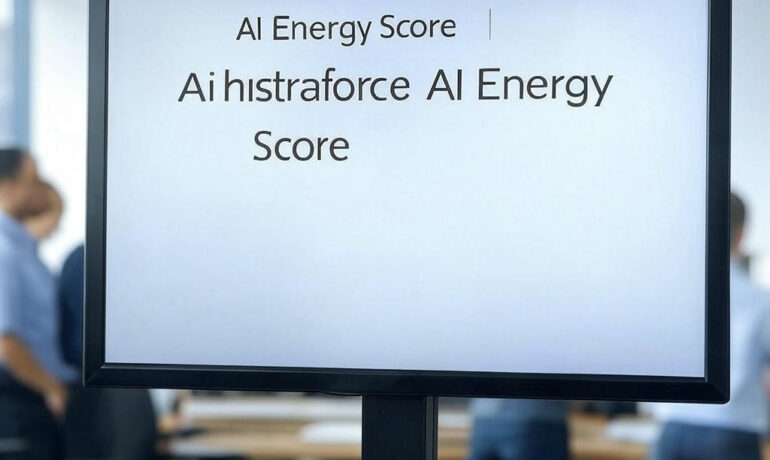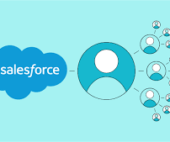Salesforce’s AI Energy Score: Setting a New Standard for AI Sustainability Understanding AI’s Environmental Impact As AI adoption accelerates globally, concerns about its environmental footprint have grown. Due to AI’s reliance on power-intensive data centers, the technology consumes vast amounts of energy and water, raising sustainability challenges. To address this, Salesforce, in collaboration with Hugging Face, Cohere, and Carnegie Mellon University, has introduced the AI Energy Score—a pioneering tool designed to measure and compare AI models’ energy efficiency. The AI Energy Score Launch The AI Energy Score will debut at the AI Action Summit on February 10, 2025, where leaders from over 100 countries, along with private sector and civil society representatives, will convene to discuss AI’s role in sustainability. Recognized by the French Government and the Paris Peace Forum, this initiative marks a significant step toward transparent and accountable AI development. “We are at a critical moment where the rapid acceleration of both the climate crisis and AI innovation intersect,” says Boris Gamazaychikov, Head of AI Sustainability at Salesforce.“AI’s environmental impact has remained largely opaque, with little transparency around its energy consumption. The AI Energy Score provides a standardized framework to disclose and compare these impacts, removing a key blocker to making sustainable AI the norm.” What Is the AI Energy Score? Developed in partnership with Hugging Face, Cohere, and Carnegie Mellon University, the AI Energy Score aims to establish clear and standardized energy consumption metrics for AI models. “The AI Energy Score is a major milestone for sustainable AI,” says Dr. Sasha Luccioni, AI & Climate Lead at Hugging Face. “By creating a transparent rating system, we address a key blocker for reducing AI’s environmental impact. We’re excited to launch this initiative and drive industry-wide adoption.” Key features of the AI Energy Score include: ✅ Standardized energy ratings – A framework for evaluating AI models’ energy efficiency✅ Public leaderboard – A ranking of 200+ AI models across 10 common tasks (e.g., text and image generation)✅ Benchmarking portal – A platform for submitting and assessing AI models, both open and proprietary✅ Recognizable energy use label – A 1–5 star system for easy identification of energy-efficient models✅ Label generator – A tool for AI developers to create and share standardized energy labels The Impact of the AI Energy Score The introduction of this score is expected to have far-reaching implications for the AI industry: 🔹 Driving market preference – Transparency will push demand for more energy-efficient AI models🔹 Incentivizing sustainable development – Public disclosure will encourage AI developers to prioritize efficiency🔹 Empowering informed decisions – AI users and businesses can make better choices based on energy efficiency data Salesforce’s Commitment to Sustainable AI Salesforce is leading by example, becoming the first AI model developer to disclose energy efficiency data for its proprietary models under this framework. This aligns with the company’s broader sustainability goals and ethical AI approach. Agentforce: AI Efficiency at Scale Salesforce’s Agentforce platform, introduced in 2024, is designed to deploy autonomous AI agents across business functions while maintaining energy efficiency. “Agentforce is built with sustainability at its core, delivering high performance while minimizing environmental impact,” explains Boris Gamazaychikov.“Unlike DIY AI approaches that require energy-intensive model training for each customer, Agentforce is optimized out of the box, reducing costly and carbon-heavy training.” Organizations are already leveraging Agentforce for impact-driven efficiencies: ✅ Good360 uses Agentforce to allocate donated goods more efficiently, cutting waste and emissions while saving 1,000+ employee hours annually✅ Businesses can reduce operational costs by optimizing AI model energy consumption “Reducing AI energy use isn’t just good for the environment—it lowers costs, optimizes infrastructure, and improves long-term profitability,” says Suzanne DiBianca, EVP & Chief Impact Officer at Salesforce.“We’re proud to work with industry leaders to build a more transparent AI ecosystem.” Addressing the AI Energy Challenge With AI-driven data center power usage projected to double by 2026, the AI Energy Score is a timely solution to help organizations manage and reduce their AI-related environmental impact. “The AI Energy Score isn’t just an energy-use metric—it’s a strategic business advantage,” adds Boris Gamazaychikov. “By helping organizations assess and optimize AI model energy consumption, it supports lower costs, better infrastructure efficiency, and long-term profitability.” As AI continues to evolve, sustainability must be part of the equation. The AI Energy Score is a major step in ensuring that the AI industry moves toward a more responsible, energy-efficient future.: Setting a New Standard for AI Sustainability Understanding AI’s Environmental Impact As AI adoption accelerates globally, concerns about its environmental footprint have grown. Due to AI’s reliance on power-intensive data centers, the technology consumes vast amounts of energy and water, raising sustainability challenges. To address this, Salesforce, in collaboration with Hugging Face, Cohere, and Carnegie Mellon University, has introduced the AI Energy Score—a pioneering tool designed to measure and compare AI models’ energy efficiency. The AI Energy Score Launch The AI Energy Score will debut at the AI Action Summit on February 10, 2025, where leaders from over 100 countries, along with private sector and civil society representatives, will convene to discuss AI’s role in sustainability. Recognized by the French Government and the Paris Peace Forum, this initiative marks a significant step toward transparent and accountable AI development. “We are at a critical moment where the rapid acceleration of both the climate crisis and AI innovation intersect,” says Boris Gamazaychikov, Head of AI Sustainability at Salesforce.“AI’s environmental impact has remained largely opaque, with little transparency around its energy consumption. The AI Energy Score provides a standardized framework to disclose and compare these impacts, removing a key blocker to making sustainable AI the norm.” What Is the AI Energy Score? Developed in partnership with Hugging Face, Cohere, and Carnegie Mellon University, the AI Energy Score aims to establish clear and standardized energy consumption metrics for AI models. “The AI Energy Score is a major milestone for sustainable AI,” says Dr. Sasha Luccioni, AI & Climate Lead at Hugging Face. “By creating a transparent rating system, we address a key blocker for reducing AI’s







